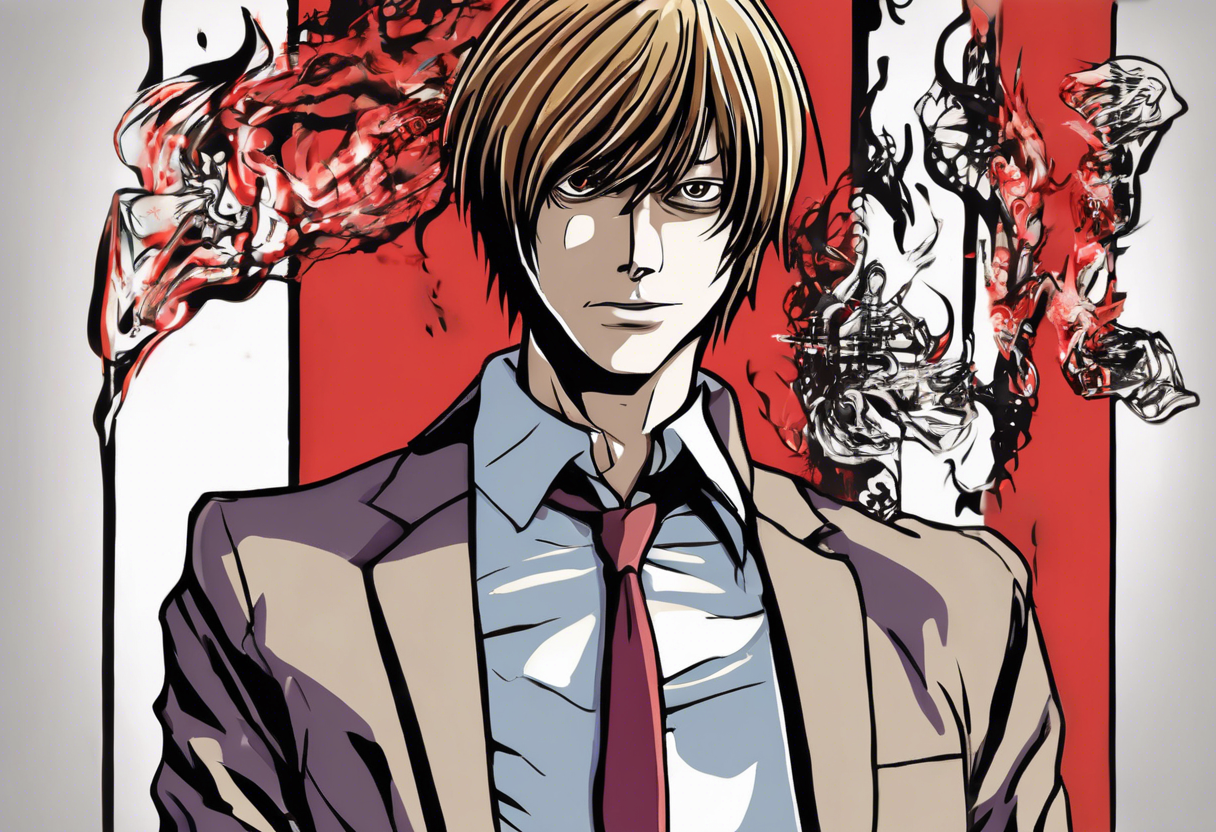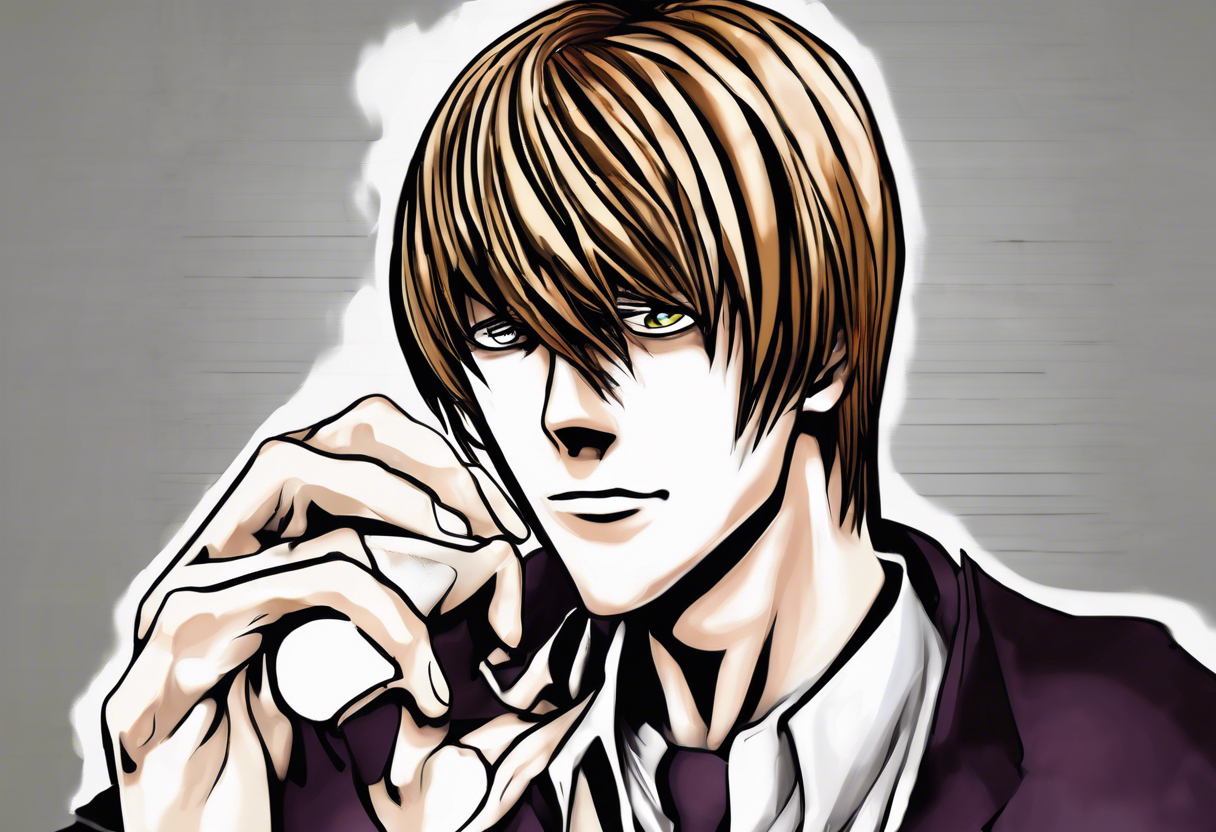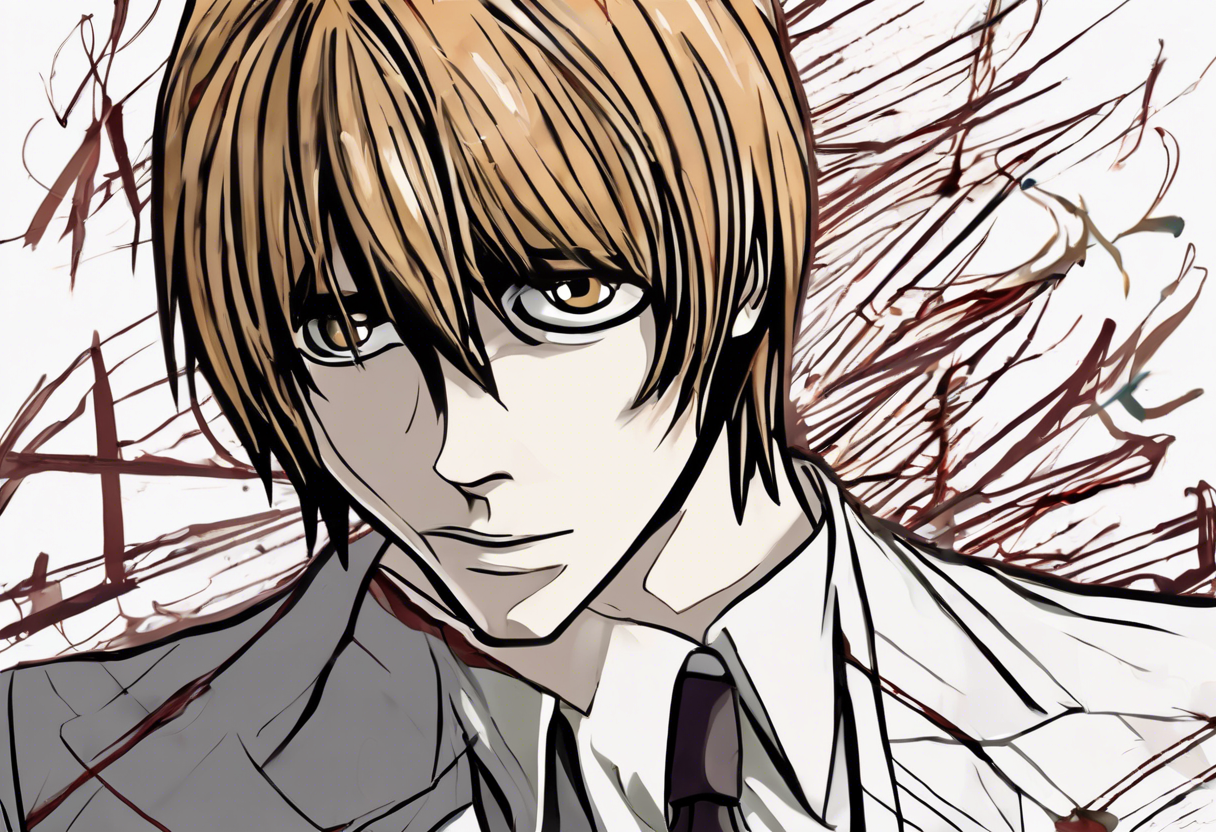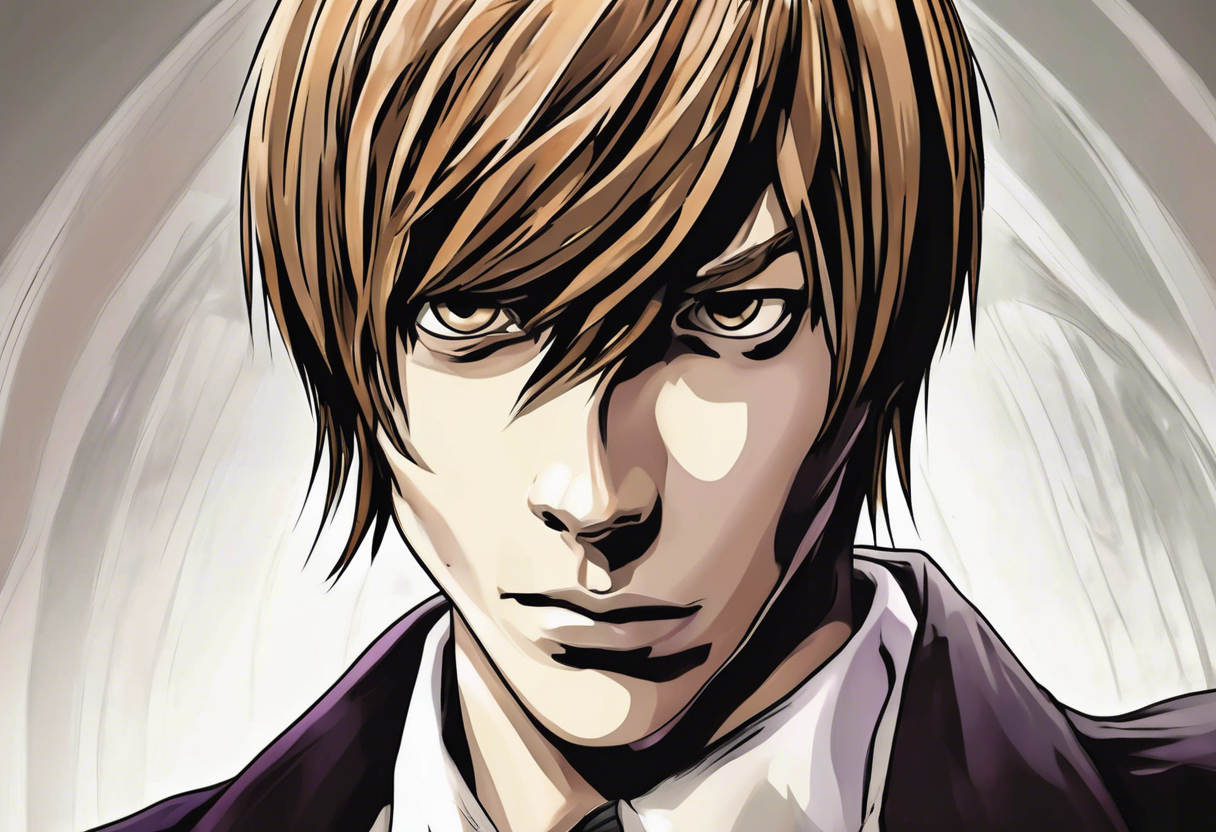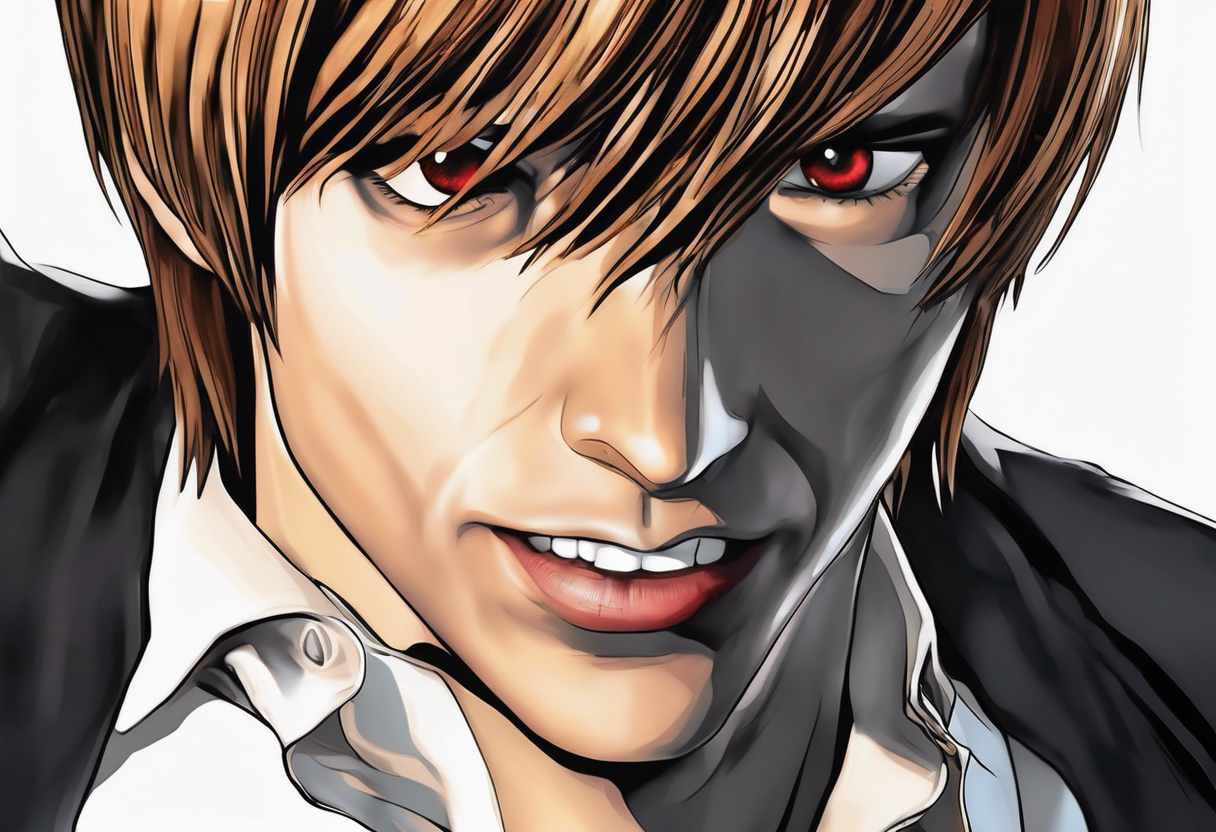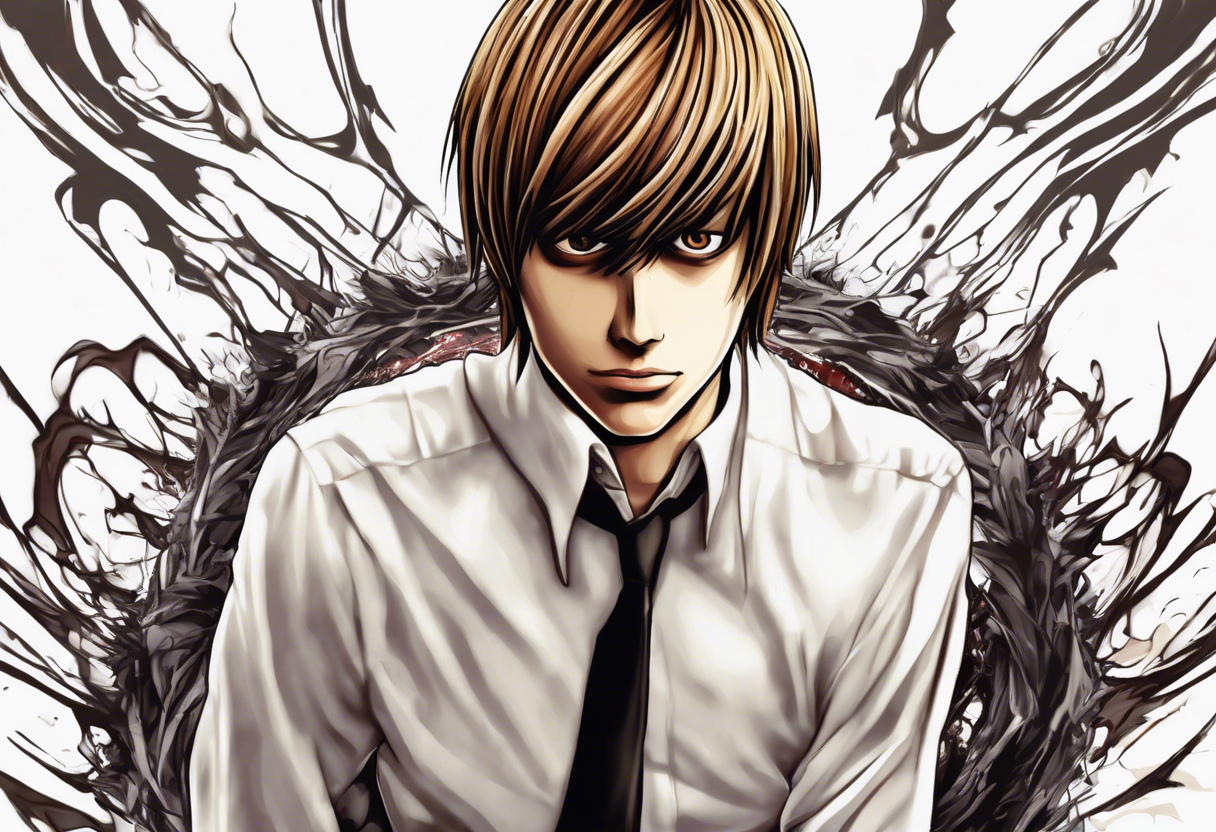Contents
Light Yagami: The Complex Protagonist of Death Note
Introduction
Light Yagami, the central character of the anime and manga series Death Note, is a figure of profound complexity and intrigue. Created by writer Tsugumi Ohba and illustrator Takeshi Obata, Light’s character embodies a rich tapestry of traits, motivations, and symbolic depth that have captivated audiences worldwide.
Light Yagami is introduced as a genius high school student living in Tokyo, Japan. He is the son of Soichiro Yagami, the head of the Tokyo Police Department, which instills in him a strong sense of justice from an early age [2][5]. Light’s life takes a dramatic turn when he discovers the Death Note, a supernatural notebook that allows its owner to kill anyone whose name is written in it, provided the owner knows the victim’s face.
Light’s defining traits include his intelligence, charm, and manipulative nature. At first glance, he appears as an overachieving and hyper-responsible teenager, but beneath this veneer lies a darker personality driven by high ideals and a cynical disgust for the current state of the world [1][2]. This duality makes Light a compelling and multifaceted character, drawing parallels with mythological and religious figures such as Lucifer, whose fall from grace mirrors Light’s own descent into darkness [3].
Role in the Story
Light Yagami’s storyline is the core of the Death Note narrative. Upon discovering the Death Note, Light adopts the alias "Kira" and embarks on a mission to create a crime-free world by killing off criminals. His actions attract global attention, and he becomes the subject of a intense manhunt led by the enigmatic detective L and later by L’s protégés, Mello and Near.
Light’s journey is marked by a series of cat-and-mouse games with these detectives. He manipulates those around him, including his family and allies like Misa Amane, to further his goals. One of the pivotal moments in his storyline occurs when he temporarily relinquishes ownership of the Death Note and loses his memories of using it, reverting to his original persona as a caring and level-headed individual. However, upon regaining the notebook and his memories, Light resumes his role as Kira, leading to a series of tragic events that ultimately result in his downfall [2][5].
Light’s relationships with other characters are crucial to the plot. His dynamic with L is particularly noteworthy, as it represents a clash between two intellectual giants. Light’s interactions with his family, especially his father, highlight the moral dilemmas he faces and the consequences of his actions. His relationship with Misa Amane, a fervent supporter and fellow Death Note owner, adds a layer of complexity to his character, showcasing his ability to manipulate and use others for his purposes [2][5].
Character Analysis
Light Yagami’s personality is a blend of intelligence, charm, and manipulative tendencies. He is driven by a strong sense of justice, which he believes is lacking in the current world. This idealism, however, gradually turns into a god complex, where Light sees himself as the ultimate judge and executioner of humanity. His actions become increasingly tyrannical and ruthless as he justifies the use of the Death Note to execute anyone he deems unworthy [1][3].
One of Light’s greatest strengths is his intelligence. He is one of the top students in Japan and uses his intellect to outmaneuver his opponents. However, this intelligence also becomes a flaw as it fuels his arrogance and belief in his own infallibility. His manipulative nature allows him to control those around him, but it also isolates him and leads to his eventual downfall [1][2].
Throughout the series, Light undergoes significant development. He transforms from an idealistic hero into a figure consumed by his own ambition and desire for power. This transformation is marked by his increasing isolation and the moral compromises he makes. Despite his flaws, Light remains a compelling character due to his complexity and the depth of his motivations [3].
Themes and Symbolism
Light Yagami embodies several key themes and symbolic elements in Death Note. His character represents the contrast between light and darkness, justice and corruption. The name "Light Yagami" itself is symbolic, with "Light" contrasting with his last name "Yagami," which means "God of the Night" in Japanese. This duality highlights the dual nature of his character and the themes of the series [3].
The series draws heavily from religious imagery and biblical references, particularly in Light’s self-perception as a messianic figure. His desire for absolute control and his actions as a self-proclaimed god of justice mirror the narrative of a fallen angel, such as Lucifer. The use of the Death Note as a tool for divine judgment further underscores these themes, reflecting the biblical concept of the Final Judgment [3].
Light’s character also explores the nature of morality and justice. His actions raise questions about the morality of taking lives, even if it is to create a better world. This moral ambiguity makes Death Note a thought-provoking series that challenges viewers to consider the consequences of such actions [3][4].
Cultural Impact
Light Yagami has had a significant cultural impact since the debut of Death Note in 2003. The character’s complexity and the series’ engaging storyline have made it a worldwide phenomenon. Light has been portrayed in various adaptations, including anime, live-action films, and stage productions. His character has been well-received by fans, who appreciate the depth and intrigue he brings to the narrative [4][5].
In adaptations and spin-offs, Light’s character has been interpreted in different ways. For example, the anime adaptation portrayed his death more sympathetically than in the manga, emphasizing the pathos of his tragic fall. This variation in interpretation highlights the versatility of Light’s character and the different perspectives through which his story can be told [2].
Light Yagami’s influence on popular culture is evident in the many references and parodies that have appeared in other media. His character has inspired other works and character archetypes, particularly in the genres of mystery and thriller. His iconic status as a complex and compelling protagonist continues to influence creators and audiences alike [4].
Critical Reception
Light Yagami has received widespread critical acclaim for his complexity and the depth of his character. Critics have praised the series for its thought-provoking themes and the moral dilemmas it presents. Light’s character, in particular, has been lauded for its nuance and the way it challenges traditional notions of heroism and villainy [3][4].
However, Light’s actions and motivations have also been the subject of controversy. Some critics argue that his descent into tyranny and his justification of murder are problematic and morally ambiguous. These criticisms reflect the broader debates about justice, morality, and the nature of power that Death Note provokes [3].
Despite these controversies, Light Yagami remains one of the most compelling and fascinating protagonists in anime history. His character has been the subject of numerous analyses and interpretations, each shedding light on different aspects of his personality and role in the narrative [1][2][3].
Legacy
Light Yagami’s enduring appeal lies in his complexity and the depth of his character. He represents a tragic figure whose ideals and ambitions lead him down a path of destruction. This narrative arc makes him relatable and thought-provoking, inviting viewers to reflect on the consequences of unchecked power and the moral compromises that come with it.
In contemporary discussions, Light Yagami continues to be a relevant figure. His character raises important questions about justice, morality, and the nature of divinity, making Death Note a series that remains pertinent in modern times. His influence can be seen in various other works that explore similar themes, ensuring that his legacy as a compelling and complex character endures [3][4].

